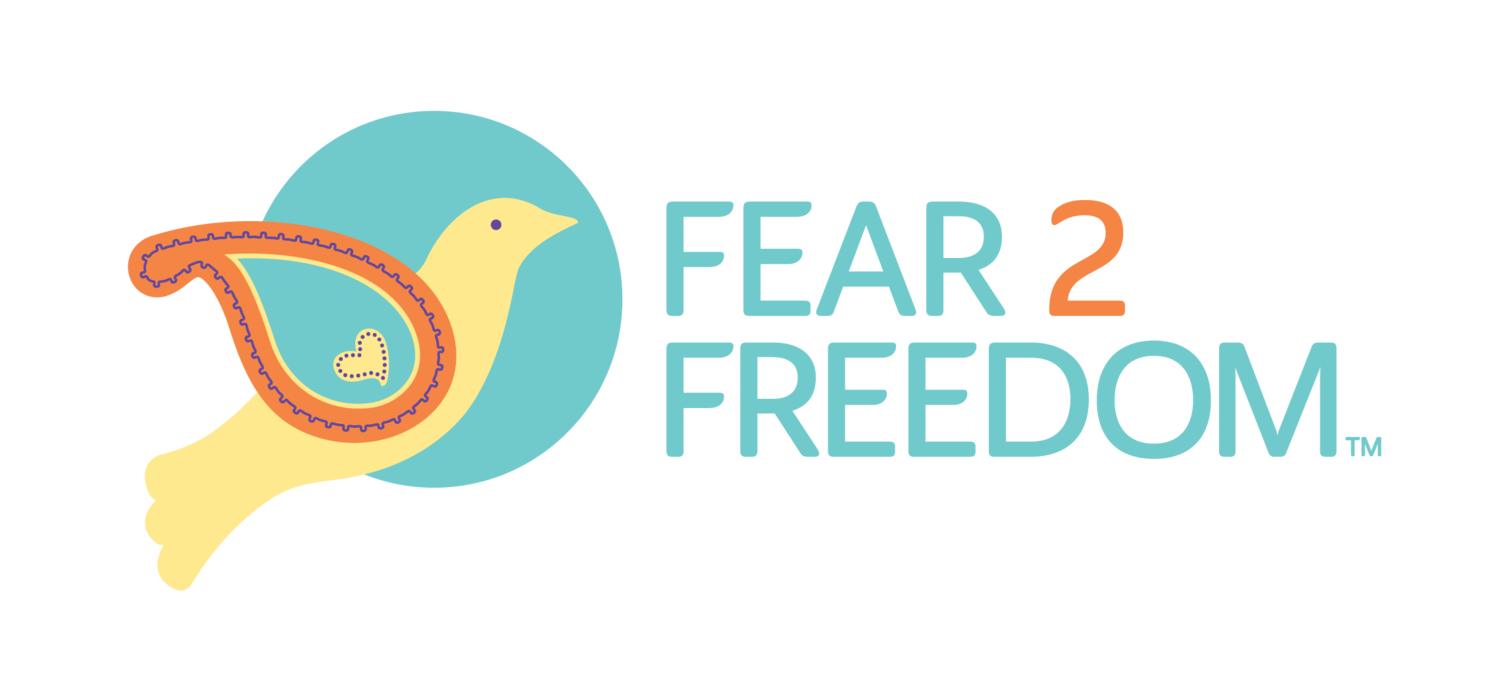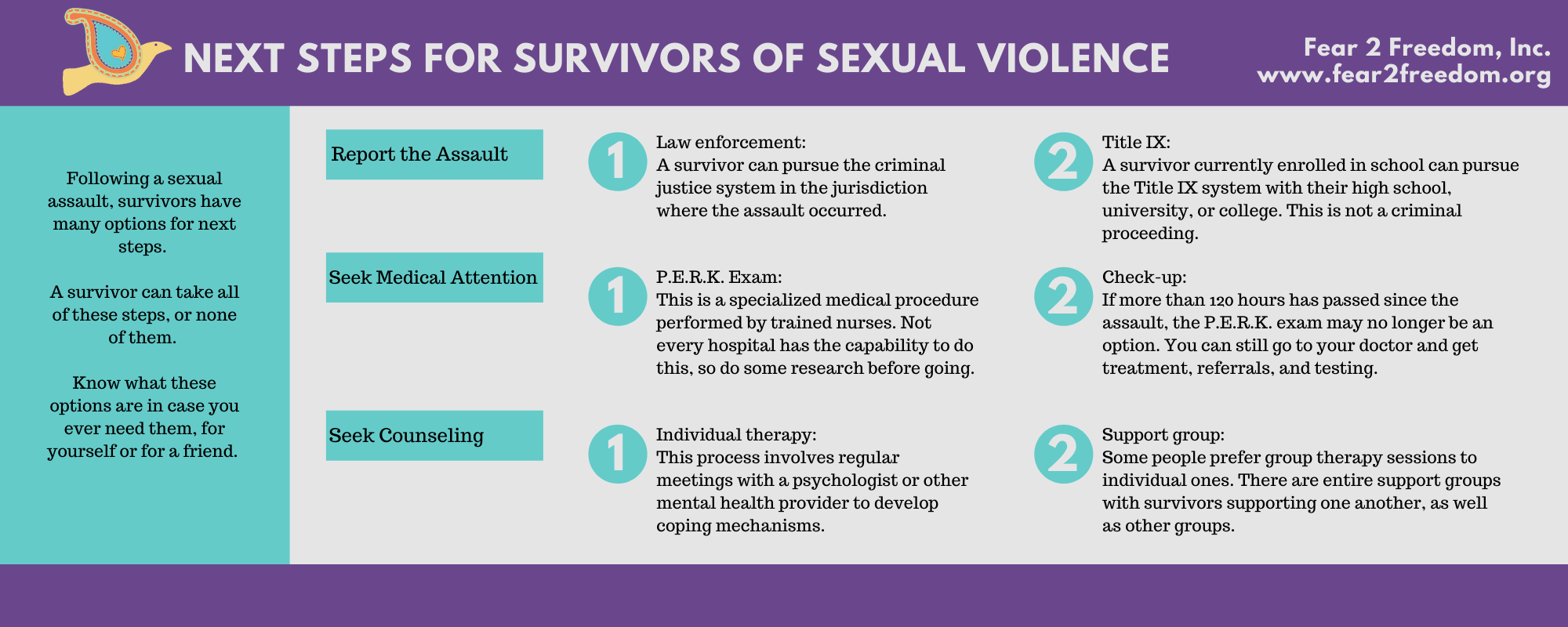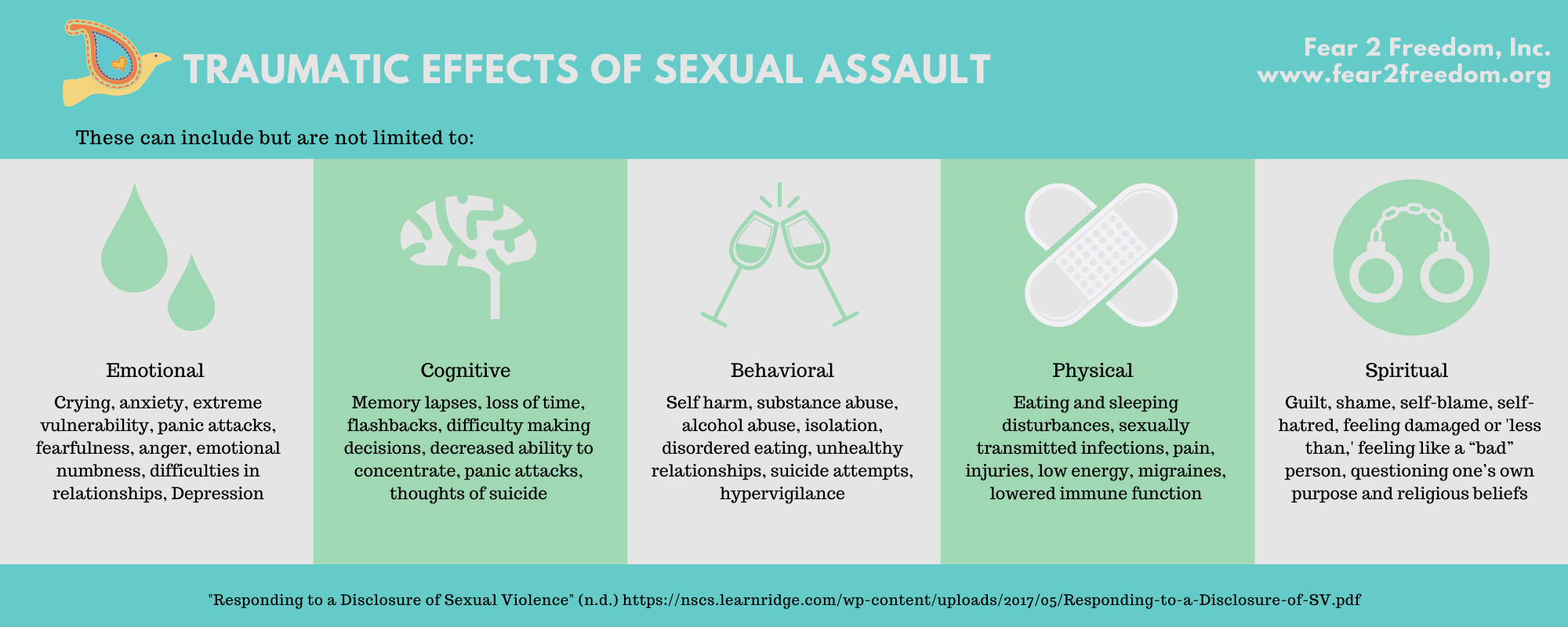Maddie Amos, Director of Grants and Programs
If someone decides to disclose an instance of sexual violence to you, it’s very important that you respond appropriately. This person has just shown incredible strength and vulnerability in telling you something deeply personal. To honor that, it’s imperative that you try to be both supportive and helpful. Listen with compassion!
Here are 5 things you should do, as well as 5 things to avoid, when responding to a disclosure of sexual violence. This information is compiled from the Nova Scotia Resource: Supporting Survivors of Sexual Violence, Responding to Disclosures on Campus.com, Planned Parenthood, and Cosmopolitan.
Do reassure the survivor that you believe them and that they are not to blame. Use phrases like the ones below.
Do keep your response neutral. You can show emotion, but if you react strongly, the survivor may worry that they’re making you feel bad. The disclosure is about them and how reclaiming their experience can help their healing process. Whatever emotions you’re feeling are completely valid, but try not to show them to the survivor.
Do ask the survivor about their support system. Help them brainstorm the resources that they already have. Ask them about the relationships in their life. Maybe they have a roommate who is supportive; maybe they have a close relationship with an older family member or mentor. Survivors of sexual violence often feel alone, so point about that they have people close to them. Ask the survivor what they do when they feel stressed. Maybe they do yoga or kickboxing, maybe they like to go for a walk. Everybody has activities that can help them decompress, so ask about those coping mechanisms and how they can be utilized here. Encourage the survivor to look at the resources that they already have.
Do explain that there are options, and say that you’re happy to support the survivor in taking whatever next step they want to pursue. Here are just some of the options a survivor can take, should they choose to do so. Remember that this is up to the survivor. It’s their choice!
Do be trauma-informed. Know what the traumatic effects of a sexual assault are. Also, be aware that a survivor may act in ways that are ‘difficult’ or ‘challenging’ in response to their trauma. Be patient and supportive. Here are just some of the most common traumatic effects of sexual assault.
Don’t ask prying questions about the assault. This can often come across as victim blaming. Make sure that 100% of the blame belongs to the perpetrator. It’s not important for you to know how late they were out, if they knew the perpetrator, etc. Avoid questions and phrases like these:
Don’t try to tell the survivor what to do. Not every person responds to trauma the same way, and what works for one person’s healing process won’t always work for another person. Avoid trying to the survivor to report their assault or tell anyone that the survivor doesn’t want to tell. Saying that they need to go through any reporting processes ‘for the sake of other potential victims’ or use any other form of guilt-tripping is harmful, so don’t do it.
Don’t touch the survivor unless they initiate it. Respect the survivor’s boundaries. After a sexual assault, an unexpected touch- even from a loved one- could be very traumatic. A survivor of sexual violence has already had their bodily autonomy violated once, and even a well-intentioned shoulder pat could easily be triggering. Here are some examples of triggers from the Saskatoon Sexual Assault and Information Center:
Don’t tell anyone about the survivor’s disclosure. There is a reason that the survivor confided in you. They trust you to keep their experience confidential. There may be safety concerns that you don’t know about or other reasons the survivor doesn’t want to disclose to a large audience. They know their situation better than you do, so respect their confidentiality. It’s their story to tell.
Don’t stop checking up on the survivor. The trauma from an act of sexual violence can last a lifetime. Just because their assault happened a month ago, or even years ago, doesn’t mean that they don’t need support. Check in with them and ask how they are doing.
Remember, these are just guidelines. Every survivor is different. If you’re unsure about something, ask the survivor. Above anything else when responding to a disclosure of sexual violence, be kind and compassionate and show the person that you care.





